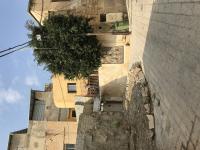Israel and construction: new opportunities 50 million dollars. So far the grants amount to 35 projects across the country in the field of construction. The nation battered by the war, it was resolved in the real estate sector, thanks to the support of foreign capital that, invested in particular ...
Israel
View listingsisrael.realigro.com is the first worldwide real estate search engine where you can look up listings of homes for sale in Israel
Property for sale in Israel
Israel is a Middle Eastern nation on the Mediterranean Sea and is considered by the Jews, Christians and Muslims as the Promised Land mentioned in the sacred texts. The most important religious sites are located in Jerusalem, the capital. In the old city, the Temple Mount complex includes the Dome of the Rock, the historic Wailing Wall, the Al Aqsa Mosque and the Church of the Holy Sepulchre. Tel Aviv is Israel's financial hub and is famous for Bauhaus architecture and beaches.
Israel borders to the north with Lebanon, with Syria to the northeast, Jordan to the east, Egypt and the Gulf of Aqaba to the south and with the Palestinian territories, i.e. with West Bank (including the historical regions of Judea and Samaria) to the east, and with the Gaza Strip to the southwest.
If you are looking for property for sale in Israel it is important to know some news about the real estate situation in the country.
The exposure of the Israeli economy to a sharp decline in the real estate market remains high, according to the Bank of Israel in its semi-annual financial stability report published in January 2018.
The Bank of Israel defines a real estate market crisis as a sharp and rapid decline in property prices on sale in Israel with heavy consequences in most economic sectors. The Bank of Israel classifies the risk of a significant and rapid fall in prices of housing as "medium-high" in the short and medium term.
The trend of the real estate market continues to show stability in recent months, the economists write, explaining that on the one hand the number of new properties sold in Israel has grown, however with a total number of new contracts considered low because investors are turning to other forms of investment. The downward trend in mortgages also continues. Bank of Israel economists say that if house prices fall quickly and dramatically, households are subject to cutting their current consumption. The Bank of Israel explains that a decline in property prices on sale in Israel will increase the loan-to-value ratio (LTV), forcing families to reduce leverage. A fall in house prices will reduce investment in construction. In addition to the high risk of a sharp decline in the real estate market, the Bank of Israel cites the risk of a reversal in global financial markets as the only risk that is increased in the last six months. Two other major risks mentioned by the Bank of Israel are a shift from economic growth to recession and a sharp shift in global long-term interest rate
trends. The Bank of Israel believes, however, that no significant change has occurred in this regard in the last six months since the publication of its previous report.
-
Israel and construction: new opportunities
 Map, price trends, and statistics
Map, price trends, and statistics
Real Estate Listings
For sale Other (Residential), Israel, منطقة الوسط, הרצליה, דורי 9 הרצליה

For sale
Other (Residential)
421 m²
For sale 3 Bedrooms, Israel, Tel Aviv District, Tel Aviv, yehuda hayamite

For sale
3 Bedrooms
160 m²
For sale House, Israel, Northern District, Nazareth, 6086

For sale
House
72 m²
For sale 3 Bedrooms, Israel, Jerusalem District, -Modiin-Macabim-Reut, Eliahu hanavi 21 Modiin

For sale
3 Bedrooms
83 m²
For sale 5+ Bedrooms, Israel, منطقة الوسط, Natanya, Ir Yamim

For sale
5+ Bedrooms
296 m²
For sale House, Israel, Tel Aviv District, Ra'anana, Ya'akov Dori Street 46, Ra'anana

For sale
House
392 m²
For sale 2 Bedrooms, Israel, Jerusalem District, Beit Shemesh, Nachal Dolev

For sale
2 Bedrooms
90 m²
For sale Villa, Israel, Jerusalem District, Bar Giora, Moshav Bar Giora

For sale
Villa
256 m²
For sale 4 Bedrooms, Israel, Northern District, Karmiel, Arava 27

For sale
4 Bedrooms
85 m²
For sale Building, Israel, Tel Aviv District, Tel Aviv, Basel

For sale
Building
200 m²
 Map, price trends, and statistics
Map, price trends, and statistics

 1,458,940.00USD
1,458,940.00USD 989,995.00USD
989,995.00USD